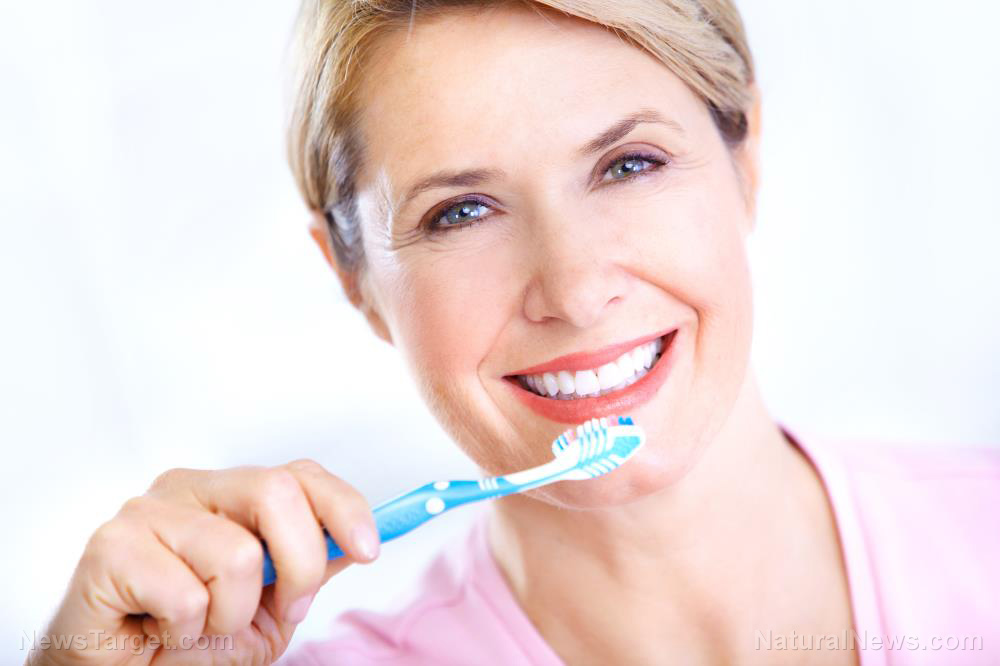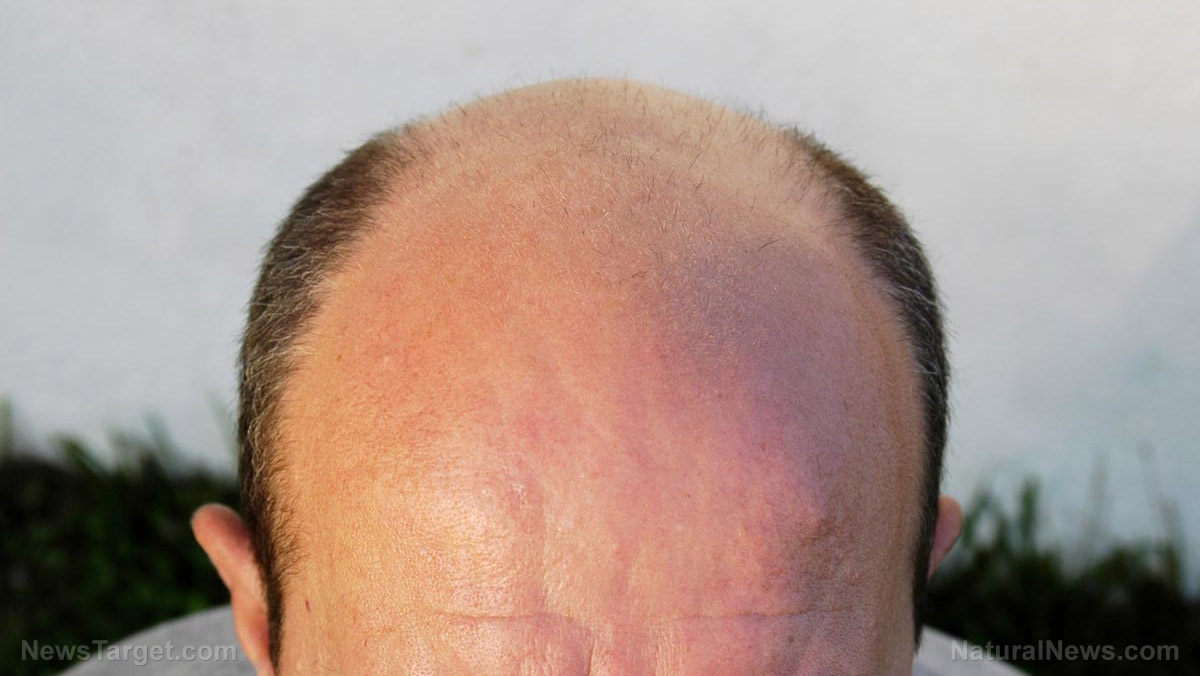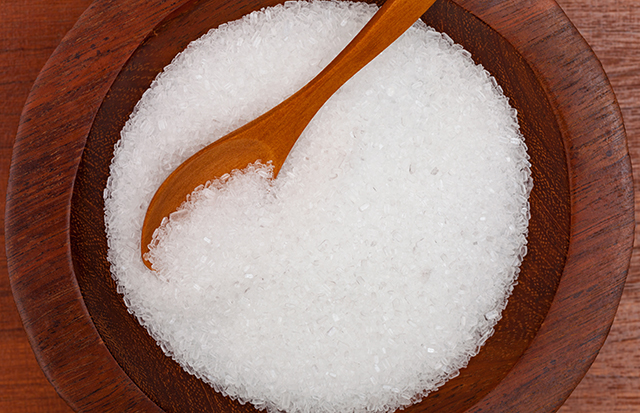Maintaining good oral health key to preventing Alzheimer’s disease, reports study
09/14/2022 / By Zoey Sky

An international study has found that brushing your teeth regularly can help prevent Alzheimer’s disease. In the study, researchers reported that people with poor dental hygiene are “21 percent more likely to develop Alzheimer’s disease later in life.”
The study is the biggest of its kind with over one million volunteers, many of which were followed for more than one decade. Details of the study were published in the Journal of the American Geriatrics Society.
Oral hygiene and brain health
Data from the study show that individuals with bad teeth or failing oral health are “23 percent more likely to develop cognitive decline,” which often leads to Alzheimer’s, a devastating health condition that affects a patient’s memory.
Dr. Sam Asher, the study’s lead author from the University of Eastern Finland, also noted that tooth loss independently increases the risk of cognitive decline by 23 percent and dementia by 13 percent. This suggests that regular visits to the dentist may help prevent dementia.
Severe cases of periodontitis, or inflammation of tooth-supporting tissues, may cause tooth loss. The condition affects about 10 to 15 percent of the world’s adult population
According to estimates, the number of dementia cases worldwide will triple to more than 150 million by 2050. Since there is no mainstream cure for dementia, health experts highlight the importance of having good lifestyle habits that keep the mind sharp.
Gum disease can cause other health issues
According to earlier research, gum disease may be linked to health problems like diabetes and cardiovascular disease. It can also cause chronic systemic inflammation. Experts think that gum disease kills neurons by increasing the number of inflammatory chemicals in the blood.
“Systemic inflammation per se is an independent determinant of cognitive deterioration and links other risk factors including diabetes, high blood pressure and cholesterol and even [aging] to cognitive deterioration,” explained the researchers.
Tooth loss can also impair brainpower by reducing jaw strength, which can then result in the loss of gray matter. Asher said that dentists can help their patients by tracking and intervening during the early changes of gum issues and promoting proper oral self-care.
The researchers emphasized that dental services need to remain consistent over time. This means patients must maintain their own dental health at home after dentists discover oral health issues.
“From a clinical perspective, our findings emphasize the importance of monitoring and management of periodontal health in the context of dementia prevention, although available evidence is not yet sufficient to point out clear ways for early identification of at-risk individuals, and the most efficient measures to prevent cognitive deterioration,” concluded the study authors.
Tips for maintaining great oral health
Follow the tips below to maintain good oral health and lower your risk of developing Alzheimer’s later in life:
Follow a healthy diet and eat mineral-rich foods
Your teeth are porous and can gain or lose beneficial minerals. To keep your teeth healthy, you need to make sure they are receiving more minerals than they lose via a process called remineralization. (Related: Study links olive oil intake to reduced heart disease and Alzheimer’s risk.)
Brushing and flossing help remove plaque, but they don’t aid or inhibit remineralization. To keep your teeth strong, you must eat a diet rich in minerals. Chose organic sources whenever possible.
Here are some mineral-rich foods to add to your regular diet:
- Cheese, especially soft cheeses
- Dark leafy greens like broccoli, kale and spinach
- Eggs
- Grass-fed meats and poultry
- Himalayan salt
- Mushrooms
- Organic (preferably homemade) bone broth
Eat foods high in fat-soluble vitamins
Foods high in vitamins A, D, E and K2 can help boost your oral health. Vitamin D helps your body absorb calcium and phosphorus while vitamin K2 ensures calcium goes to your teeth and bones.
Check with your physician before taking supplements with large doses of fat-soluble vitamins since they can cause toxicity. Always review recommended dosage guidelines.
Eliminate refined sugar from your diet
Sugar is the main food source for bacteria that produce harmful acid on your teeth. Sugar intake is also a contributing factor to different health issues like cancer, diabetes and heart disease.
Eliminating refined sugar from your diet will help reduce bacterial growth and protect your teeth from harmful acid.
Avoid unhealthy snacking
Snacking on carbs during the day provides the bacteria in your mouth with a consistent supply of food. Well-fed bacteria will produce more acid and weaken your tooth enamel.
This is why you need to give your digestive system time to break and rejuvenate. If you like eating snacks, opt for carb-free food or rinse your mouth with water after eating to dilute the sugar and help saliva buffer the acids.
Stay hydrated
Drinking a lot of water regularly helps flush away food debris and bacteria stuck in your teeth and gums. It also helps dilute the acid in your mouth.
Dry mouth can put your teeth at risk of tooth decay. Drinking plenty of water helps promote saliva production, which keeps teeth strong by washing them with beneficial minerals.
Don’t forget to clean your tongue
You also need to clean your tongue to maintain proper oral hygiene. Do this by brushing your tongue as part of your daily routine.
Cleaning your tongue helps reduce bacteria, and it can help freshen your breath and contribute to an overall cleaner feeling.
Try oil pulling
Oil pulling refers to using a high-quality edible oil like coconut oil and swishing it around your mouth for at least 20 minutes. This helps keep teeth clean and removes plaque.
Oil pulling also removes bacteria from the mouth and prevents them from sticking onto your teeth.
When bacteria are left on teeth, they produce acid that corrodes surface enamel. This exposes the vulnerable dentin layer underneath. Keep your teeth strong with a regular oil pulling routine.
Use a fluoride-free toothpaste
Fluoride is a harmful chemical that can cause fluorosis and other negative side effects like bone problems and teeth discoloration. You should avoid fluoride-containing toothpaste and products with whitening agents because these can be abrasive on teeth.
Maintain proper oral health to keep your breath fresh and protect yourself against Alzheimer’s disease later in life.
Visit Oralhealth.news for more tips on how to keep your gums and teeth healthy.
Watch the video below to know how licorice root can help improve your oral health.
This video is from the Groovy Bee channel on Brighteon.com.
More related stories:
Study: Ingredient in toothpaste and mouthwash linked to antibiotic resistance.
Prepper tips: 10 Ways to maintain oral hygiene in the wilderness.
Sources include:
Submit a correction >>
Tagged Under:
aging, Alzheimer's disease, brain function, brain health, cognitive decline, cognitive health, dementia, dental health, dental hygiene, gum disease, gum health, health science, natural cures, oral health, prevention, research
This article may contain statements that reflect the opinion of the author
RECENT NEWS & ARTICLES
Natural.News is a fact-based public education website published by Natural News Features, LLC.
All content copyright © 2018 by Natural News Features, LLC.
Contact Us with Tips or Corrections
All trademarks, registered trademarks and servicemarks mentioned on this site are the property of their respective owners.





















